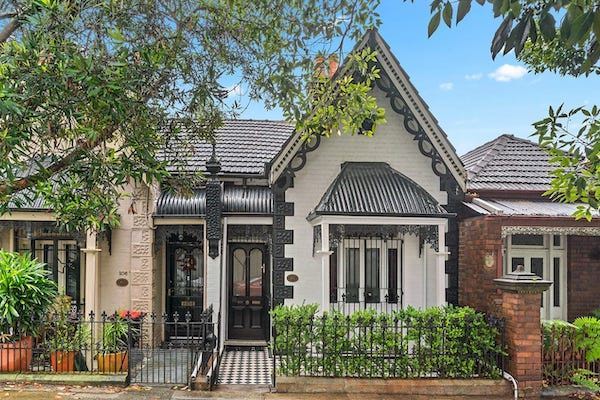Australian Expats Working abroad: Looking for financing a property in Australia.
If you’re an Australian expat working abroad and looking to purchase property in Australia, there are a few key points you need to know about securing a loan. Here’s a guide to help you understand the process.

How Much Can I Borrow?
Your borrowing capacity is determined by your overseas income, which is converted into Australian Dollars (AUD). Depending on the lender, banks may assess 60% to 100% of your foreign income when calculating your loan eligibility. Some lenders may consider 100% of your gross AUD-equivalent income, but policies vary based on the accepted currencies and financial criteria.
Key Factors That Affect Your Borrowing Power:
✔️ Foreign Income Consideration – Most lenders assess between 60-100% of your overseas earnings.
✔️ Self-Employed Borrowers – Many banks do not accept self-employed overseas income, but a select few lenders may consider it.
✔️ Rental Income from Australian Properties – Typically, 80% of gross rental income is used for loan servicing calculations.
Since lending policies change frequently, it’s crucial to consult an expert mortgage broker who understands expat home loans and can connect you with lenders that match your financial profile.
📞 Contact us today to explore your borrowing options!
financial services done right
Key Points for Expat Loans
Maximum Loan-to-Value Ratio (LVR):
Maximum LVR is typically 80%, with city CBD apartments potentially limited to 70% LVR, due to a few risk factors. There are couple banks/lenders could go to 90% LVR, but case by case only.
Loan Amounts
Each bank will have slightly different maximum borrowing capacities for expat loans. This is why it important to talk to a Mortgage broker who understand the different banks policy or criteria for Australian expats .
Interest Rates
Generally rule; Australian banks/lenders will give the same interest rate as if you are living in Australia and applying for a home or investment loan. Please note; specialist Expat lenders may charge slightly higher interest rates for expat loans. General reason these lenders may have policy that suits the customers overseas situation. E.g. Overseas income self employed Australian Expat
Accepted Overseas Currencies
Example of acceptable foreign overseas incomes;GBP, EUR, HKD, NZD, SGD, CAD, USD, INR, IDR, VND, CNY, QAR or JPY. Some currencies may not be acceptable and list can change at any time. Note; Some lenders may accept USD, but if the application is working a country that has protenstionly high political velocity, the lender decline the application.
Eligibility
Australian citizens and permanent residents Expats can purchase either a residential for the purpose of an owner occupiled property or investment and purchasing commercial property for investment is generally obtained by doing a lease doc application and if the servicing meets ICR of 1.5 times.
Refinancing
Yes, you can refinance your existing investment or home loan with a new lender who is offering a better rate or policy is suits your current situation. Some lenders will do a small or limited cash out amount E.g. $250K AUD, if you require the funds for other investment purposes.
experts in finance
Evidence of Ability to Reside and Work in a Foreign Country
If you’re earning foreign income, you’ll need to provide proof of your ability to reside and work in the country where the income is being earned. The required documents depend on your citizenship status:
- If you do not hold dual citizenship with the foreign country:
- Australian passport
- Work permit/work visa with a minimum of 4 months remaining
- If you hold dual citizenship with the foreign country:
- Australian passport
- Foreign passport from the country where income is earned.
- Working Visa E.g. USA green card.
- Letter from Employor stating your current status of employment.
- Copy of employment contract.


experts in finance
How to Purchase Property While Living Overseas
Purchasing property in Australia while living abroad requires careful planning and
understanding of the financial and legal aspects. Here’s a guide to help you navigate
the process:
1. Application Structure and Credit Assessment
When applying for a loan to purchase property in Australia, lenders will conduct a full credit assessment based on your income streams, total assets, living expenses, and ongoing liabilities. For those living overseas, banks will convert your foreign financial information and liabilities into Australian Dollars (AUD) to determine if your proposed loan service under the banks criteria.
2.Overseas Expenses
Lenders will consider your overseas living expenses, which may include:
- Rent payments
- Overseas credit card debt
- Home loan, Car loans and credit card limits
- Day-to-day living expenses for yourself and your family (e.g., private school fees, monthly living costs, health insurance, and travel expenses).
These expenses will be factored into your ability to repay the proposed loan, so it’s important to provide accurate details of your financial commitments.
3.Deposit Requirements
A typical deposit requirement ranges from 20% to 30% of the property’s purchase price. Plus purchase costs, E.g. Government Stamp duty fees, your solicitor or conveyancer fees. Having a larger deposit gives you access to a broader range of lenders and may result in better interest rate. Your deposit can be a mixture of combination of cash savings or equity in any existing Australian property you own. or Cash deposit which will cover the 20% plus perporty purchase costs
4.Translation of foreign documents
All Australian banks or lenders will require you use NAATI to translate any foreign documents into English.
All documents must have certificate of transation each time documents are translated.
About NAATI:
National Accreditation Authority for Translators and Interpreters (NAATI) is the official body responsible for certifying translators and interpreters in Australia. It plays a crucial role in ensuring high-quality language services, particularly for government, legal, medical, and community sectors.
NAATI certification is essential for professionals who wish to work as recognized interpreters or translators in Australia. It ensures that individuals meet rigorous standards of linguistic accuracy, cultural competence, and ethical conduct. Many government agencies and institutions require NAATI-certified translations for official documents such as visas, citizenship applications, and legal papers.
To become certified, candidates must pass a NAATI examination, which tests their proficiency in both languages, their ability to convey meaning accurately, and their knowledge of professional ethics. Continuous professional development is also encouraged to maintain high standards.
Documentation
Documentation.
As an expatriate applying for a mortgage while living overseas, you will need to provide comprehensive documentation to support your application. These documents typically include:
- Proof of identity: Valid passport and/or driver’s license.
- Proof of income: Employment contract, salary slips, and bank statements showing regular salary deposits. If you are self-employed, you may need to provide additional documents, such as minimum of 2 years business financial statements or tax returns.
- All non English documents, must be translated by (National Accreditation Authority for Translators and Interpreters). NAATI*
- Cost of translating documents is paid by the applicant.
- Proof of residency: Documentation indicating your overseas residency status, such as a valid visa or work permit.
- Tax returns: Provide recent tax returns from your home country or the country where you are residing, must be translated into English by a NAATI certified person
- Credit history: Obtain credit reports from relevant credit bureaus in your home country or country of residence.
experts in finance
How to Purchase a Future Owner-Occupied Property While Overseas
If you plan to purchase a property with the intention of living in it once you return to Australia, the process will differ slightly:
1.Purchasing as an Investment Property Initially
If you’re living overseas, banks will assume that you won’t occupy the property immediately and will treat the purchase as an investment property. This means that the property will be assessed based on investment lending criteria, and you will need to demonstrate your ability to service the loan using foreign income.
2.Changing the Loan Purpose Once You Move Back
When you return to Australia and begin living in the property, you can inform the bank that you now occupy the property. This can typically be done by providing proof of residence, such as:
- Your driver’s license with the property address
- Utility bills (e.g., phone or electricity bills)
Once the bank is satisfied that the property is your primary residence, they can adjust the loan from “investment” to “owner-occupied.” This will likely reduce your interest rate and improve the overall terms of your home loan.
Conclusion
Purchasing property in Australia while living overseas is entirely feasible, but it requires navigating both local and foreign financial considerations. Understanding how lenders assess foreign income, managing overseas expenses, and knowing how to transition an investment property into an owner-occupied home are key steps in the process.
Important points to note:
Important points to note:
- Most banks and lenders do not accept self-employed overseas income for loan servicing.
- A select few lenders will consider self-employed income from overseas.
- Rental income is generally serviced at 80% of the gross rental income.

What is the right loan for you?
Schedule a free consultation with our team and let’s make things happen!
Monthly Mortgage Payments













join the success
Exceptional financial solutions
At AEL Home Loans, our mission is to provide exceptional financial solutions to a diverse range of income earners, from expats and self-employed professionals to PAYG employees. With access to over 35 lenders, including private lenders when needed, we are uniquely positioned to offer the most suitable lending options tailored to the specific needs of our clients.


